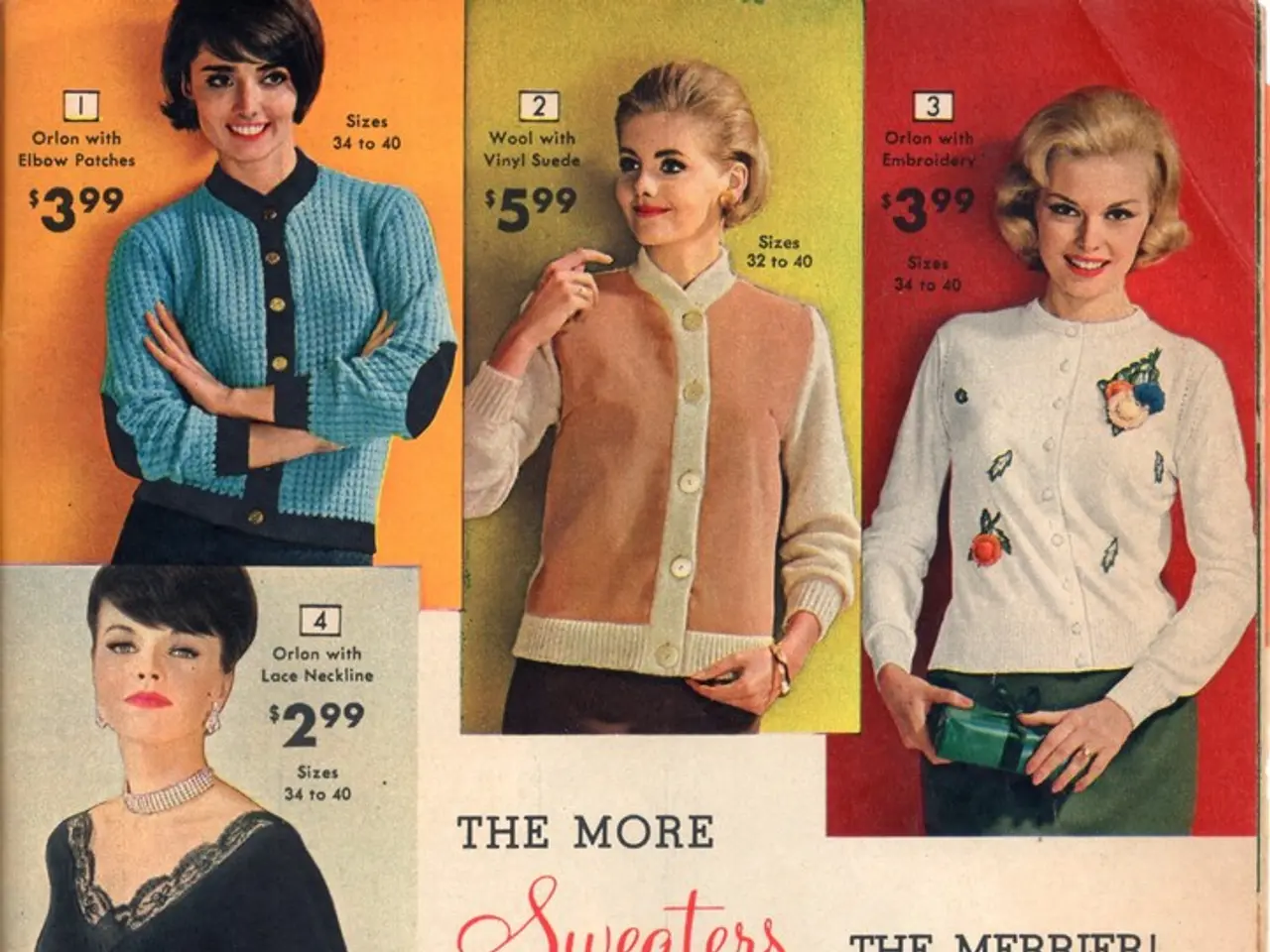Sustainable Fashion without Gender Boundaries: Merging Eco-Friendly Style with Fluid Aesthetics
In the ever-evolving world of fashion, a new trend is emerging that is not about turning away from style but rather having a different perspective on it. This trend is genderless and sustainable fashion, a movement that is gaining momentum, particularly among Gen Z consumers.
These consumers are seeking clothes that are not only comfortable but also have a good conscience. And, fortunately, there are several brands leading the charge in this movement, offering sustainable and gender-inclusive fashion options.
Pioneering Brands in the Genderless Sustainable Fashion Movement
Girlfriend Collective
Girlfriend Collective, an American brand, is making waves in the sustainable fashion industry by using recycled materials and eco-friendly dyes. Their commitment to circular fashion extends to taking back old pieces for recycling. The brand offers an inclusive size range from XS to 6XL, providing activewear and lounge pieces designed gender-neutrally. Ethical manufacturing and landfill waste reduction are other notable practices of this forward-thinking brand.
Outerknown
Outerknown, another American brand, is known for its use of regenerative fibers like hemp and organic cotton. The brand also practices Fair Trade production. Outerknown's laid-back style, often considered gender-neutral, appeals to many consumers. The brand's "Second Wave" resale program is a testament to its commitment to circular fashion.
Nudie Jeans
Nudie Jeans, a Swedish brand, is renowned for its 100% organic cotton denim and free lifelong repairs. The brand encourages returning old jeans for recycling. Nudie Jeans' iconic denim, with an inclusive aesthetic, is a popular choice for those seeking sustainable fashion.
Organic Basics
Organic Basics, a Danish brand, produces eco-friendly intimates and basics suitable for all genders. The brand offsets carbon emissions and has transparent ethical factory partnerships.
Pact
Pact, an American brand, supports organic farming with Fair Trade-certified conditions and avoids chemicals. The brand offers basics and loungewear in sizes from XS to XXL, with gender-neutral fits. Pact uses 81% less water than traditional cotton, making it a more sustainable choice.
Other Notable Brands
No Nasties from India offers unisex everyday basics with zero environmental impact. Kowtow, a New Zealand brand, blends minimalist design with strict ethical standards. Sepia Stories, another Indian brand, combines traditional artisan craft with conscious design, creating timeless pieces from organic materials, natural dyes, and gender-neutral cuts. Raeburn, a UK brand, innovates through upcycling and smart design, focusing on sustainability. CHNGE, a US brand, is known for its bold graphic streetwear and commitment to social causes.
Scandinavian brands like Rodebjer also contribute to the movement with eco-conscious materials and styles that emphasize minimalism and sustainability, often appealing to gender-neutral consumers due to their clean, unisex aesthetics.
As more people seek clothes that not only fit them but also do not harm the environment, genderless and sustainable labels are proving that fashion can be better, more stylish, and make more sense. The new trend in fashion is genderless and sustainable, with clothing being practical, expressive, stylish, inclusive, and environmentally friendly.
- In line with the growing demand for sustainable fashion, several brands like Girlfriend Collective, Outerknown, Nudie Jeans, Organic Basics, and Pact are leading the charge, offering gender-inclusive clothes made from eco-friendly materials.
- No Nasties from India, Kowtow from New Zealand, Sepia Stories also from India, Raeburn from the UK, CHNGE from the US, and Rodebjer from Scandinavia are other noteworthy brands that cater to the market's increasing interest in genderless and sustainable fashion, emphasizing ethical standards, minimalist design, and eco-conscious materials.
- As more Gen Z consumers prioritize clothing that not only fits but also reflects their values of sustainability and inclusivity, the movement towards genderless and sustainable fashion continues to gain momentum, transforming the fashion-and-beauty industry into one that is aligned with lifestyle choices focusing on sustainable living, home-and-garden practices, and overall well-being.




